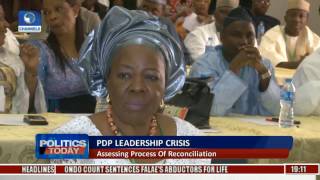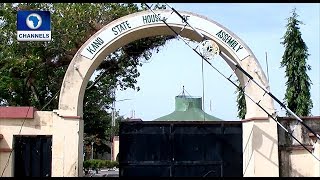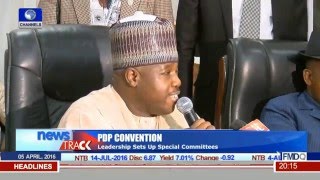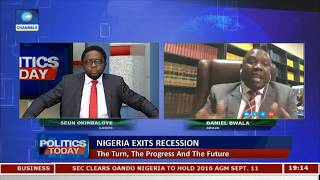Monday, 19 January, 2026г.
















Где искать: по сайтам Запорожской области, статьи, видео ролики
пример: покупка автомобиля в Запорожье
Nigerian govt withdraws civil lawsuit in preparation for new case against Pfizer
Kano - Recent
1. Children allegedly affected by Pfizer playing
2. Boys walking through streets, one on bike
Lagos - July 19, 2007
3. Various exteriors of Pfizer office
4. Barrister Abdulateff Thomas, at desk
5. SOUNDBITE (English) Abdulateff Thomas, Barrister:
"At that time there was(n't) any deal at all. It was done by a corrupt person. Not government. Mind you government is an organ, now they are being run by people. So at that time, the person, if there was any deal at all it was made by an individual against the interest of the government, against the interest of a nation, if you get what I'm saying. Now, forget about it, if any deal was done at all it was (an) individualistic deal. I don't want to hear about it. Pfizer also have known better - could they do that deal in America? Can they do it in the UK? Or in any of the European countries? No."
6. Close-up of Thomas working on computer
7. SOUNDBITE (English) Abdulateff Thomas, Barrister:
"Nothing is going to happen to Pfizer, if anyone tells you otherwise, the person is joking. Pfizer is going to remain strong, it will continue to make money and they will also be made accountable for the deed they did against Nigerians."
Kanu - Recent
8. Kurna-Asabe Abdullah, sitting with her child who she says was affected by Pfizer drugs
9. Child lying on mat
STORYLINE:
Nigerian government lawyers have withdrawn a 7 (b) billion US dollar civil lawsuit against US drugmaker Pfizer on Friday in preparation for filing a new case, with new material they believe will strengthen their case.
The criminal case, is one of three currently being brought in Nigeria against the company.
The government has accused Pfizer, the world's largest pharmaceutical company, of taking advantage of a 1996 meningitis epidemic to test an experimental drug without authorisation or full understanding of the families involved - allegedly contributing to the deaths of some of the children and making others sick.
Pfizer denies wrongdoing.
The civil case is in addition to a federal criminal case and separate from civil and criminal cases launched at the state level in the northern state of Kano. All the cases stem from the same mid-1990s drug study.
Pfizer treated 100 meningitis-infected children with an experimental antibiotic, Trovan.
Another 100 children, who were control patients in the study, received an approved antibiotic, ceftriaxone - but the dose was lower than recommended, the families' lawyers alleged.
Up to 11 children in the study died, while others suffered physical disabilities and brain damage. Pfizer always insisted its records show none of the deaths was linked to Trovan or substandard treatment.
Barrister Abdulateff Thomas said that he did not accept any of the company's excuses that the studies were conducted through a deal with the Nigerian government.
"If there was any deal at all it was made by an individual against the interest of the government, against the interest of a nation," he said.
"Could they do that deal in America? Can they do it in the UK? Or in any of the European countries? No," he added.
Speaking before the latest development, he added that he did not believe that Pfizer would suffer any consequences as a result of the - now withdrawn - lawsuit.
"Nothing is going to happen to Pfizer, if anyone tells you otherwise. Pfizer is going to remain strong, he said.
Authorities in Kano state are blaming the Pfizer controversy for widespread suspicion of government public health policies, particularly the global effort to vaccinate children against polio.
Islamic leaders in largely Muslim Kano had seized on the Pfizer controversy as evidence of a US-led conspiracy.
Vaccination programmes restarted in Nigeria in 2004, after an 11-month boycott.
You can license this story through AP Archive: http://www.aparchive.com/metadata/youtube/320c665f3b71436ee7673bc0f4b663db
Find out more about AP Archive: http://www.aparchive.com/HowWeWork
Теги:
AP Archive 530315 320c665f3b71436ee7673bc0f4b663db Nigeria Pfizer Nigeria Kano West Africa Government and politics Health General news
Похожие видео
Мой аккаунт


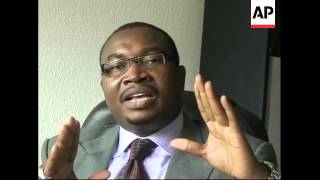 У вашего броузера проблема в совместимости с HTML5
У вашего броузера проблема в совместимости с HTML5